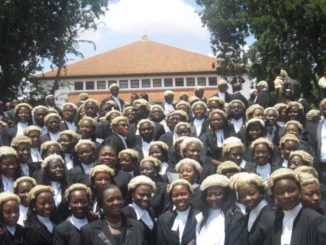
Over the years, Americans’ power to make their own decisions has been increasingly displaced by governments. That trend has been justified in part by the desire to control what government views as vice (including an increasing tendency to find vice in environmental effects). Unfortunately, that approach violates citizens’ inalienable self-ownership, unlike deterring crime, which better protects citizens’ self-ownership. It has made government a hyperactive nanny-state bully rather than a protector against bullying.
This externally-enforced “self-control” justifies reconsidering Lysander Spooner, whose birthday is January 19. Spooner laid out why our natural right of self-ownership, combined with the right to enter into voluntary arrangements with other self-owners, made government coercion of peaceful people illegitimate, a moral principle not to be overridden just because someone with political power considers others’ choices to be vices. Since we are now far from that ethical standard, we need to rediscover his vision, spelled out in his 1875 Vices Are Not Crimes; A Vindication of Moral Liberty:
“Vices are those acts by which a man harms himself or his property. Crimes are those acts by which one man harms the person or property of another…In vices, the very essence of crime—that is, the design to injure the person or property of another—is wanting.”
“Unless this clear distinction between vices and crimes be made and recognized by the laws, there can be…no such thing as individual right, liberty, or property; no such things as the right of one man to the control of his own person and property.”
“If these questions…are not to be left free and open for experiment by all, each person is deprived of the highest of all his rights as a human being, to wit: his right to…ascertain for himself, what is, to him, virtue, and what is, to him, vice…If this great right is not to be left free and open to all, then each man’s whole right, as a reasoning human being, to ‘liberty and the pursuit of happiness,’ is denied him.”
“What man, or what body of men, has the right to say, in regard to any particular action, or course of action, ‘We have tried this experiment, and determined every question involved in it…not only for ourselves, but for all…And, as to all those who are weaker than we, we will coerce them to act in obedience to our conclusion?'”
“[A] government, formed by voluntary association, would never have been thought of, if the object proposed had been the punishment of all vices…nobody…would voluntarily submit to it. But a government, formed by voluntary association, for the punishment of all crimes is a reasonable matter; because everybody wants protection for himself against all crimes by others.”
“It is a natural impossibility that a government should have a right to punish men for their vices; because it is impossible that a government should have any rights, except such as the individuals composing it had previously had, as individuals. They could not delegate to a government any rights which they did not themselves possess.”
“Nobody but a fool or an impostor pretends that he, as an individual, has a right to punish other men for their vices. But…everybody has a natural right…to defend his own person and property against aggressors…And government has no rightful existence, except in so far as it embodies, and is limited by, this natural right of individuals…It is only those who claim that government has some rightful power, which no individual or individuals ever did, or could, delegate to it, that claim that government has any rightful power to punish vices.”
“To punish men for their vices…is a sheer and utter absurdity for any government claiming to derive its power wholly from the grant of the governed…because it would be granting away their own right to seek their own happiness.”
“Everybody wishes to be protected, in his person and property, against the aggressions of other men. But nobody wishes to be protected… against himself…He only wishes to promote his own happiness, and to be his own judge as to what will promote, and does promote, his own happiness.”
“The object aimed at in the punishment of crimes is to secure, to each and every man alike, the fullest liberty he possibly can have—consistently with the equal rights of others—to pursue his own happiness, under the guidance of his own judgment, and by the use of his own property…the object aimed at in the punishment of vices is to deprive every man of his natural right and liberty to pursue his own happiness, under the guidance of his own judgment, and by the use of his own property.”
“[People]…must be permitted to control themselves and their property… each man’s life is his own.”
In an era when anything someone can characterize as vice is considered to provide sufficient reason for eviscerating individual sovereignty, Spooner’s vision is crucial.
Murray Rothbard recognized it as “a great bulwark against the State’s eternal invasion of rights.” Coerced obedience cannot be derived from our natural rights or our Constitution. But coercing obedience is more than a vice of our government; it is a denial of our fitness for the Declaration of Independence’s central premise and a violation of its central purpose.




